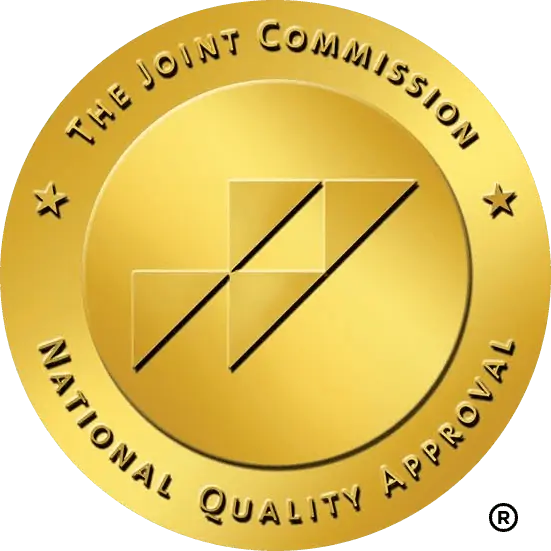Despite the stigma surrounding it, mental illness is very common among teens and adolescents. Approximately 1 in 5 teens suffers from some type of mental health disorder, which can have a major impact on their overall health and well-being, especially during those crucial developmental years.
The formative teenage years bring an immense amount of stress trying to balance the pressure of school, friends, work, and extracurricular activities. Throw mental health into the mix and you have a recipe for disaster. It’s no wonder so many teens are subject to the struggle of mental disorders.
The stigma surrounding mental health often makes it difficult to form an open line of communication around the subject. However, it is critical that parents understand how best to talk to their kids about mental health, in order to provide the best support.
This article will provide guidance on how to start those tough conversations, as well as tips and tricks on how to keep those conversations going and maintain an open channel of communication.
When should I talk to my teen?
Ideally, mental health should always be an ongoing topic of conversation. Make mental health a topic you routinely check in on, and be sure to bring it up whenever you notice your teen is down or going through a stressful time.
How do I start this conversation?
Starting a conversation is often the hardest part, but it is important for young people to feel comfortable and supported. Acknowledge that the conversation may feel uncomfortable at first and that talking about feelings can be scary. General conversation starters can be helpful to get the ball rolling. Begin with asking questions about school, sports, or friends. When you are ready to dive in, start by explaining how a vital part of a teen’s overall health is mental health. Oftentimes, the stigma surrounding mental health can lead teens to feel ashamed or embarrassed. It’s important to help them understand that mental illness is nothing to be ashamed of, and it can affect anyone.
Talking to teenage boys
Male teens have most likely been conditioned to be strong and show less emotion than their female counterparts. This makes them less likely to open up about potential mental health struggles, so the things they do say are all the more important. This means that as parents, you should spend more time watching and listening than you do talking. Express to your teens that it is okay to be vulnerable, and it’s not a sign of weakness.
One tip that can be helpful in getting teen boys to open up is finding someone they look up to that has spoken out about mental health. Do they have a favorite sports player? An idol? Approaching your teen with that information can help alleviate the pressure of society’s ingrained stigma. If my idol can open up about mental health, then so can I.
If you’ve reached a point where you notice changes in your teen, try conversation starters such as:
- “I’ve noticed you seem overwhelmed lately, I am happy to listen to anything you have on your mind”
- “I’ve noticed you don’t seem like yourself, how have things been lately? How are you feeling?”
- “You seem anxious, how can we work through this together?”
One rule of thumb to keep in mind is to ask TWICE, but not too many times. You want your child to know you care, but also respect their boundaries. This allows for the build-up of trust, and hopefully, they’ll come to talk when they’re ready. However, sometimes kids don’t want to talk to their parents about their struggles and that’s okay. Be open to other avenues for help such as a school guidance counselor or professional therapy.
Talking to teen girls
Being a teenage girl is hard enough on its own, but sometimes you notice your child going through more than just typical teenage girl drama. When this occurs, you want to create a dialogue with your child and allow them to open up. Let them know that you recognize they’re having a hard time, and ask what you can do to support their needs. Sometimes there may not be an answer for how you can help, but providing reassurance lets them know you want to help. If your teen is struggling to describe their feelings, try asking direct questions to gather information.
- “Have you lost interest in activities that used to make you happy?”
- “Have you noticed a change in sleep patterns?”
- “Have you felt a lack of control over your thoughts, feelings, and moods?”
- “Do you feel satisfied with yourself?”
The answers to questions like these can help open up communication and allow you to figure out when it may be necessary to seek professional help. There is never a perfect time to have tough talks, so the most important thing is to start. In the car, on a walk, or before bed, just start the conversation.
In some cases, no matter how hard you try, teens will require more help than a parent can give. Located near the banks of Montana’s South Fork Yaak River, Turning Winds is a residential treatment center that provides teens with a safe space to work through various mental health challenges with professional guidance. Through a multifaceted approach, Turning Winds gives young people the opportunity and environment to develop the self-agency essential to leading a free, healthy, and purposeful life. Our licensed clinicians, resident advisors, and teachers provide individualized care that fosters growth and teaches youth to restore their quality of life. Call 800-845-1380 or Contact Us to learn more about how Turning Winds can help your teen learn to live their most fulfilled life.
Note* If your child is expressing suicidal thoughts, please contact your local health provider or the National Suicide Prevention Lifeline at 1-800-273-8255.









